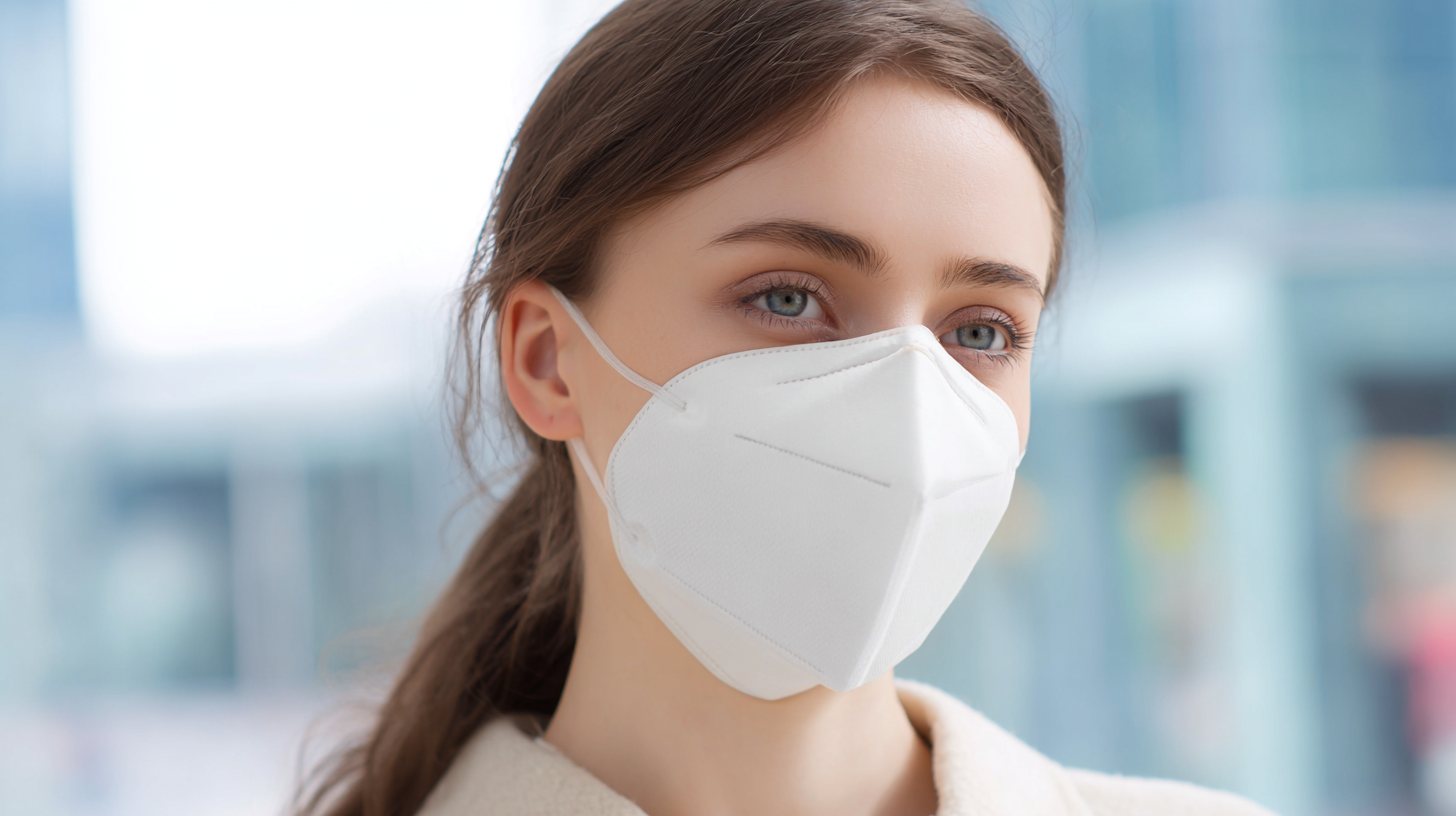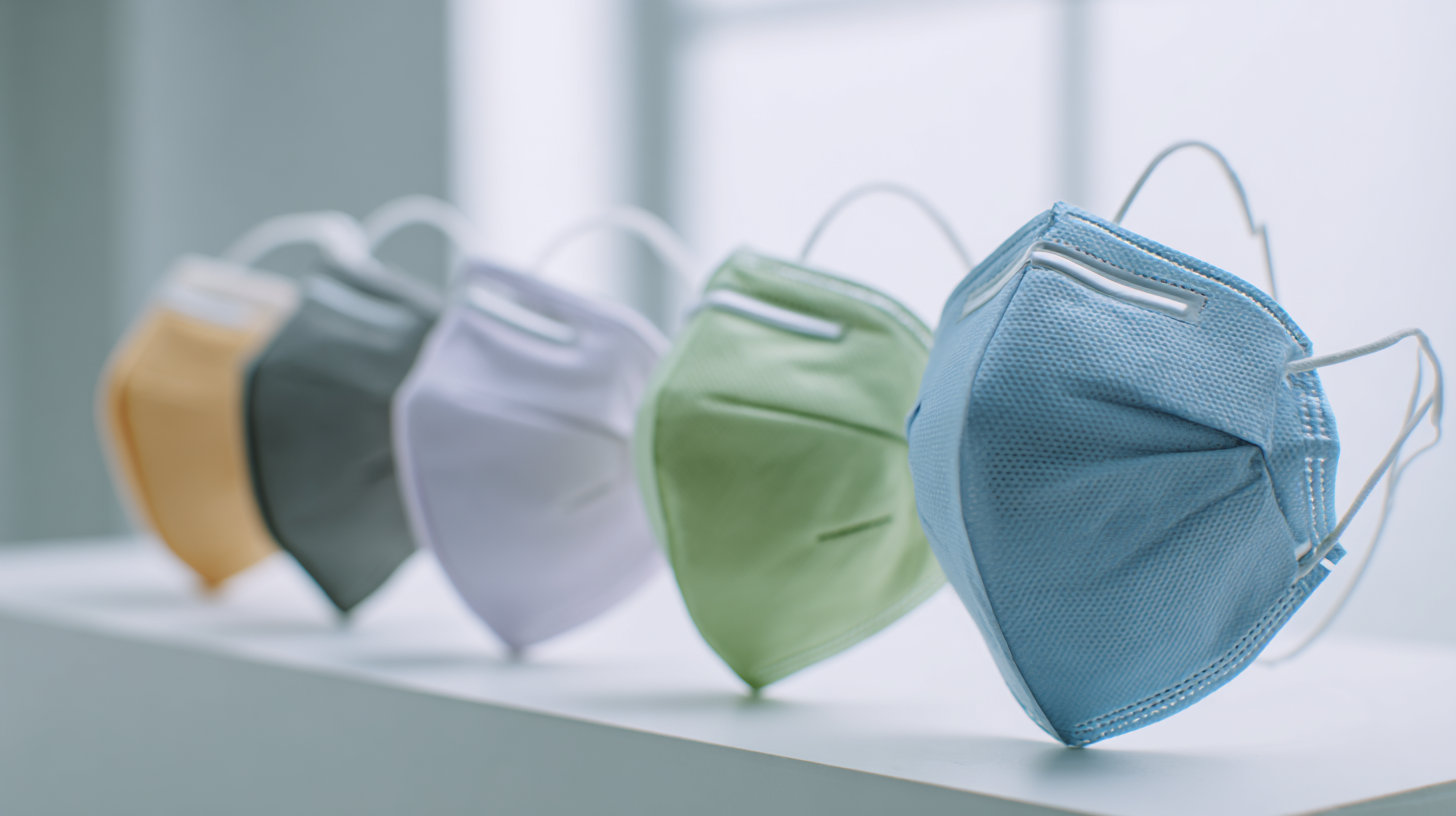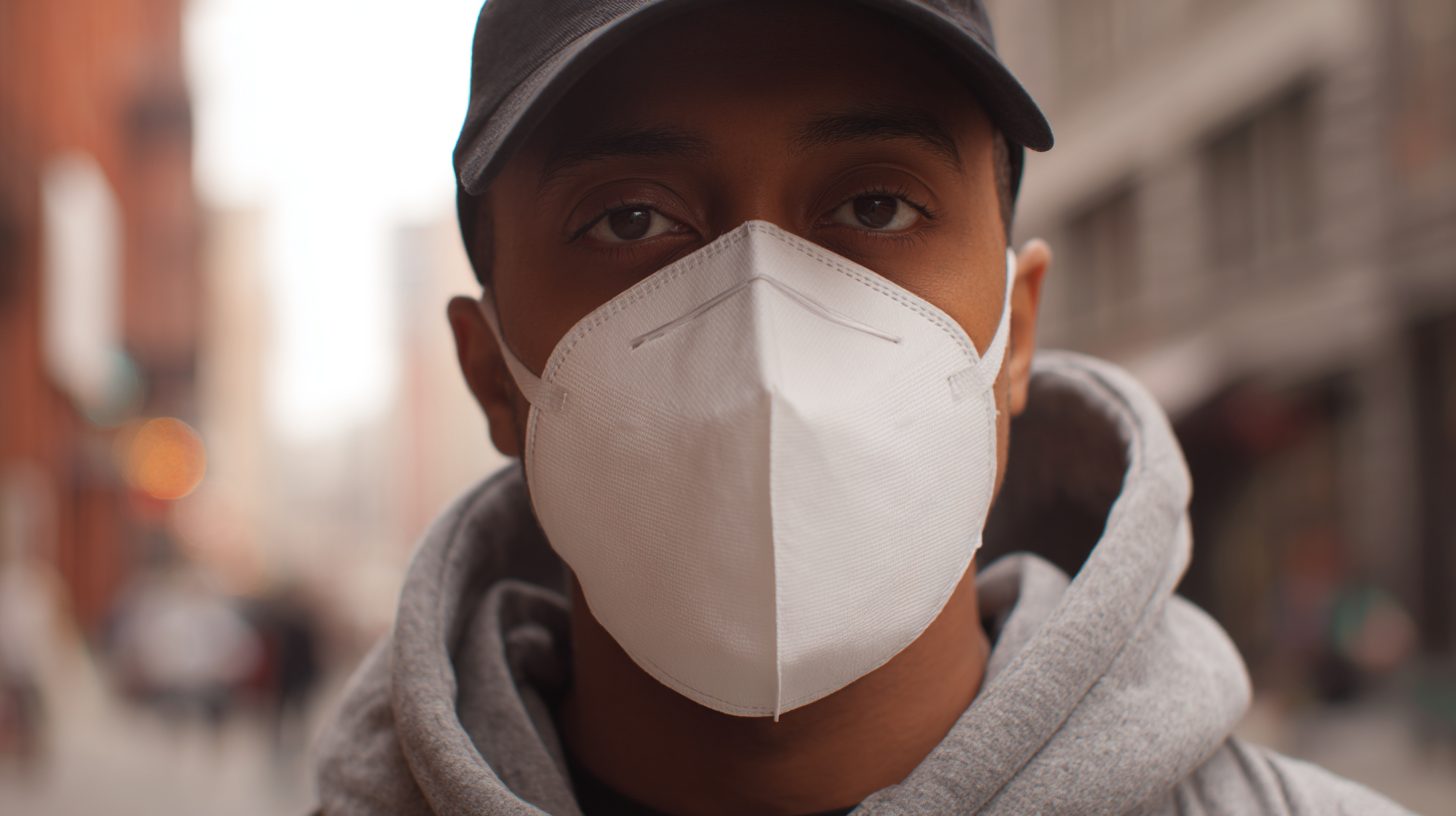

In the wake of global health crises, the demand for N95 face masks has surged dramatically, leading to an urgent need for effective procurement strategies. According to a report by the World Health Organization, the N95 respirators are proven to filter at least 95% of airborne particles, making them essential for frontline healthcare workers and vulnerable populations alike. However, with numerous options flooding the market, identifying high-quality N95 face masks has become increasingly challenging. Furthermore, experts estimate that the global demand for N95 masks could reach over 3 billion units annually, underscoring the importance of a systematic approach to procurement. This ultimate guide provides a comprehensive checklist to help organizations and individuals navigate the complexities involved in sourcing the best N95 face masks, ensuring safety and compliance in an unpredictable environment.

When selecting the best N95 face masks for global procurement, three critical factors—performance, fit, and comfort—must be evaluated meticulously. According to the National Institute for Occupational Safety and Health (NIOSH), N95 masks are designed to filter out at least 95% of airborne particles, including large respiratory droplets. However, not all N95s are created equal. Performance can vary significantly based on the mask's filtration efficiency and resistance to fluids. A report from the Journal of Occupational and Environmental Hygiene highlights that masks with higher breathability ratings tend to have better overall filtration performance, which is essential in high-risk environments.
Fit is another paramount factor; an improperly fitted mask can cause leakage, reducing its protective capabilities. The Centers for Disease Control and Prevention (CDC) emphasizes that a well-fitted N95 must create a tight seal around the face, allowing for effective particulate capture. Fit testing should be conducted regularly, especially in occupational settings, as the facial structure can change over time. Additionally, the importance of comfort cannot be overstated; studies indicate that masks designed with ergonomic features enhance compliance and wear-time, especially when used in prolonged scenarios. Thus, prioritizing masks that combine solid performance, secure fit, and superior comfort will ensure optimal safety and efficacy in face covering solutions.
When it comes to selecting the best N95 face masks, understanding NIOSH certification is crucial. The National Institute for Occupational Safety and Health (NIOSH) sets stringent standards for respiratory protection, ensuring that masks labeled as N95 can filter out at least 95% of airborne particles. NIOSH certification not only guarantees the mask's effectiveness but also its durability, making it an essential criterion for global procurement. Buyers should always check for the NIOSH logo and certification number on the mask packaging, as these are indicators of compliance with safety regulations.

Tips for selecting the right N95 face mask include examining the seal check and fit. An effective N95 mask should create a complete seal around your nose and mouth, ensuring no unfiltered air enters. A proper fit test can help identify the right size and shape for different face types. Additionally, consider the mask's material; it should be comfortable for extended wear while maintaining filtration efficiency. Remember that a well-formed N95 mask not only protects the wearer but also contributes to public health safety during respiratory outbreaks.
It’s also wise to evaluate the procurement source. Purchase N95 masks from reputable suppliers to avoid counterfeit products. The demand for N95 masks can lead to substandard items entering the market, so confirm that your supplier is recognized by health organizations and provides verified NIOSH-certified masks. This diligence will ensure that your procurement meets the necessary safety standards.
When it comes to selecting the best N95 face masks for global procurement, understanding filtration efficiency is crucial. N95 masks are designed to filter out at least 95% of airborne particles, but the effectiveness of a mask can vary significantly based on its design and the materials used. To ensure you are choosing the right mask, it's essential to examine established filtration standards such as NIOSH certification in the United States. This certification guarantees that the mask has undergone rigorous testing to meet specific performance criteria.
Testing methods for N95 masks typically involve measuring the mask’s filtration efficiency through laboratory assessments that simulate real-world conditions. These tests assess factors such as airflow resistance, particle size, and the ability of the mask to maintain its efficiency over time. Additionally, considering the mask's fit and seal is vital, as even a mask with superior filtration may not offer adequate protection if it doesn’t fit snugly on the face. By prioritizing these standards and testing methods, procurement specialists can make informed decisions, ensuring that they select the most effective N95 masks for health and safety.
The global procurement of N95 face masks highlights the fundamental importance of supply chain transparency, particularly in times of crisis. Effective procurement processes require a clear understanding of the entire supply chain, from manufacturing to distribution, to ensure that high-quality masks are reliably available. Recent insights into enhancing supply chain resilience emphasize breaking down silos within organizations. A RevOps approach can significantly improve the coordination among sales, operations, and procurement teams, creating a comprehensive view of both demand and supply. This holistic perspective is crucial in adapting to fluctuations in needs during public health emergencies.
As observed during the COVID-19 pandemic, the vulnerabilities of medical supply chains were starkly exposed. Reports indicate that many health organizations struggled to secure adequate protective equipment due to a lack of transparency and coordination within their procurement strategies. By implementing more transparent systems that monitor real-time supply levels and demand forecasts, organizations can not only enhance their responsiveness but also mitigate the risks associated with shortages. Consequently, a commitment to transparency in the procurement of N95 masks is not merely best practice; it is an essential element for safeguarding public health in future pandemics.
When sourcing N95 face masks from top manufacturers in China, it's essential to conduct a thorough comparative analysis to ensure quality, compliance, and reliability. Begin by evaluating the manufacturer's certifications, such as FDA approval and NIOSH standards. A reputable manufacturer should be able to provide documentation verifying their masks meet or exceed safety regulations. Furthermore, consider the production capacity and history of the manufacturer; those with a proven track record in high-volume production are more likely to meet urgent demand without compromising quality.

Another critical aspect to analyze is the materials used in the manufacturing process. The best N95 masks feature high-quality, multi-layer filtration technology that ensures maximum protection against airborne particles. Investigating user reviews and feedback from healthcare professionals can provide valuable insights into the practical performance of the masks. Lastly, assess the manufacturer’s supply chain and logistics capabilities, as a robust system will ensure timely delivery and minimize delays, especially during global procurement efforts. By focusing on these key factors, organizations can confidently identify the best N95 face masks that align with their procurement needs.